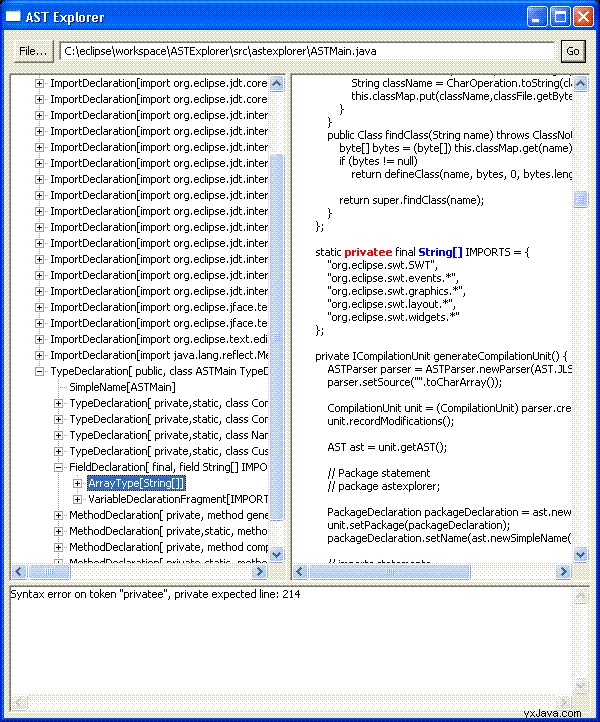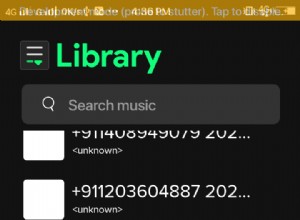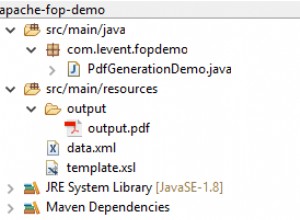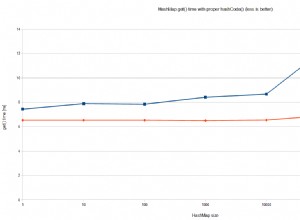Hoe kan ik de Java Eclipse Abstract Syntax Tree gebruiken in een project buiten Eclipse? (dwz geen eclips-plug-in)
Hieronder staat de code die ik hiervoor heb gebruikt, gegeven een Java 1.5-bestand. Ik ben hier erg nieuw in en heb vandaag rondgekeken en dingen uitgeprobeerd om de onderstaande code werkend te krijgen.
public void processJavaFile(File file) {
String source = FileUtils.readFileToString(file);
Document document = new Document(source);
ASTParser parser = ASTParser.newParser(AST.JLS3);
parser.setSource(document.get().toCharArray());
CompilationUnit unit = (CompilationUnit)parser.createAST(null);
unit.recordModifications();
// to get the imports from the file
List<ImportDeclaration> imports = unit.imports();
for (ImportDeclaration i : imports) {
System.out.println(i.getName().getFullyQualifiedName());
}
// to create a new import
AST ast = unit.getAST();
ImportDeclaration id = ast.newImportDeclaration();
String classToImport = "path.to.some.class";
id.setName(ast.newName(classToImport.split("\\.")));
unit.imports().add(id); // add import declaration at end
// to save the changed file
TextEdit edits = unit.rewrite(document, null);
edits.apply(document);
FileUtils.writeStringToFile(file, document.get());
// to iterate through methods
List<AbstractTypeDeclaration> types = unit.types();
for (AbstractTypeDeclaration type : types) {
if (type.getNodeType() == ASTNode.TYPE_DECLARATION) {
// Class def found
List<BodyDeclaration> bodies = type.bodyDeclarations();
for (BodyDeclaration body : bodies) {
if (body.getNodeType() == ASTNode.METHOD_DECLARATION) {
MethodDeclaration method = (MethodDeclaration)body;
System.out.println("name: " + method.getName().getFullyQualifiedName());
}
}
}
}
}
Dit vereist de volgende bibliotheken:
commons-io-1.4.jar
org.eclipse.jdt.core_xxxx.jar
org.eclipse.core.resources_xxxx.jar
org.eclipse.core.jobs_xxxx.jar
org.eclipse.core.runtime_xxxx.jar
org.eclipse.core.contenttype_xxxx.jar
org.eclipse.equinox.common_xxxx.jar
org.eclipse.equinox.preferences_xxxx.jar
org.eclipse.osgi_xxxx.jar
org.eclipse.text_xxxx.jar
Volgens dit oude artikel zou je AST-parser onafhankelijk van je applicatiecontext moeten kunnen aanroepen (eclipse-plug-in of niet).
ASTParser parser = ASTParser.newParser(AST.JLS2);
parser.setSource("".toCharArray());
CompilationUnit unit = (CompilationUnit) parser.createAST(null);
unit.recordModifications();
AST ast = unit.getAST();

(bron:ibm.com)
Van dit bugitem:
ASTParser in 3.0 kan in een ander zelfstandig programma worden gebruikt om EclipseAST's te maken zonder Eclipse daadwerkelijk uit te voeren. Zoals de documentatie zegt:
char[] source = ...;
ASTParser parser = ASTParser.newParser(AST.JLS2); // handles JLS2 (J2SE 1.4)
parser.setSource(source);
CompilationUnit result = (CompilationUnit) parser.createAST(null);
Daarom probeert deze thread een zeer korte Java-bron te ontleden:
import org.eclipse.jdt.core.dom.*;
import org.eclipse.jface.text.Document;
import org.eclipse.text.edits.TextEdit;
public class Test{
public static void main(String[] args){
Test t= new Test();
t.runtest();
}
void runtest(){
Document doc = new Document("import java.util.List;\nclass X {}\n");
ASTParser parser = ASTParser.newParser(AST.JLS3);
parser.setResolveBindings(true);
parser.setSource(doc.get().toCharArray());
CompilationUnit cu = (CompilationUnit) parser.createAST(null);
cu.recordModifications();
AST ast = cu.getAST();
ImportDeclaration id = ast.newImportDeclaration();
id.setName(ast.newName(new String[] {"java", "util", "Set"}));
cu.imports().add(id); // add import declaration at end
TextEdit edits = cu.rewrite(doc, null);
}
}



